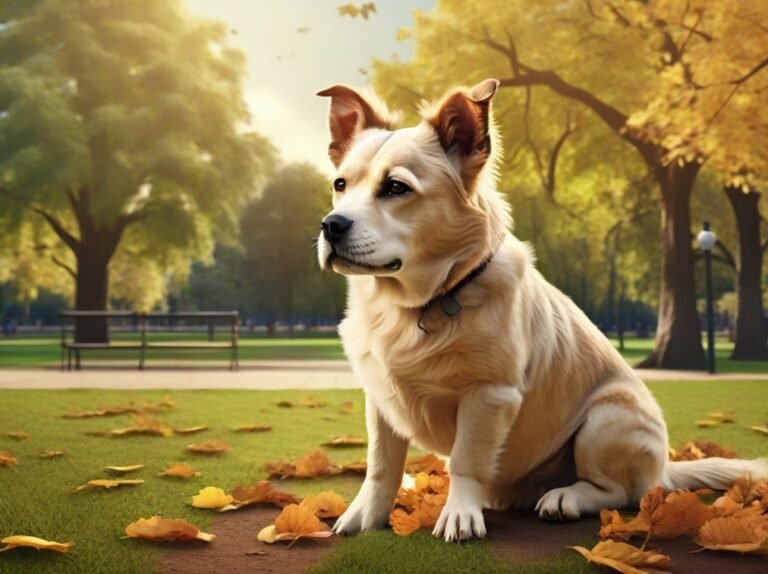Grapes and their dried forms, like raisins and sultanas, pose a significant threat to your dog’s health. Even a small amount can lead to kidney failure, which is life-threatening. Symptoms can appear quickly and might include vomiting, diarrhoea, lethargy, and loss of appetite.
Important Points to Remember:
- Avoid leaving grapes or related foods within your dog’s reach.
- If your pet accidentally ingests these fruits, consult a vet immediately.
- There is no safe level of grape consumption for dogs.
Dogs might react differently to these toxic fruits, so it’s crucial to be vigilant and cautious.
Can dogs consume grapes?
Dogs should not consume grapes. These fruits are known to be toxic to them and can lead to serious health problems. Even a small amount, like a single grape, might pose a risk. The exact reason why grapes are harmful isn’t fully understood. However, they have been linked to kidney failure in dogs.
Why are grapes harmful?
- Toxicity Risk: All types and forms of grapes, including raisins and currants, are harmful to dogs.
- Kidney Problems: Ingesting grapes can lead to kidney failure, which might be life-threatening.
- Unknown Cause: While the exact toxin in grapes is unclear, some theories suggest substances like tartaric acid could be responsible.
Symptoms of Grape Poisoning
If your dog has eaten grapes, watch out for symptoms such as:
- Vomiting or diarrhoea
- Lethargy or weakness
- Lack of appetite
- Changes in urine output
If you notice any of these signs, consult a vet immediately. Eating grapes can be hazardous, so it’s better to ensure these fruits are always out of your dog’s reach. For more information, you can read about grape toxicity in dogs at Pet Society Vet.
Why are Grapes and Raisins Bad for Your Dog?
Grapes and raisins are dangerous for dogs and can lead to severe health issues. Even small amounts can be harmful. The exact reason why these fruits are toxic to dogs is linked to a substance within them that causes a variety of symptoms, including vomiting, lethargy, and in some severe cases, kidney failure.
Toxicity Levels
Here is how the toxicity levels generally measure up in terms of grams per kilogram of body weight:
- Raisins & Sultanas: Around 3g per kg
- Currants: Approximately 8g per kg
- Grapes: About 20g per kg
These levels indicate just how little it can take to cause harm to your pet.
Possible Symptoms
The symptoms of grape or raisin poisoning may vary in dogs, but they often include:
- Vomiting
- Diarrhoea
- Loss of appetite
- Lethargy
- Abdominal pain
If you notice any of these signs, it’s important to seek veterinary help immediately.
How to Avoid Accidental Consumption
To protect your dog, ensure these foods aren’t left within their reach. This includes not just the fresh fruits but also foods containing them, like raisin bread or grape jellies. Further details can be found in articles such as the one by the AKC on grape safety for dogs.
Being aware of the dangers and ensuring your dog doesn’t have access to these fruits can help prevent serious health complications.
Why Are Grapes Dangerous for Dogs?
Grapes and raisins are harmful to dogs, potentially causing severe health issues. Though the exact substance causing the toxicity isn’t clearly identified, even small amounts can be life-threatening, leading to kidney failure.
Key Risks for Dogs:
- Kidney Damage: Consumption can lead to renal failure, making it crucial to keep grapes away from dogs.
- Uncertain Threshold: The amount needed to harm a dog varies, but even a few grapes may be enough.
- Dried Variants: Raisins and sultanas are even more concentrated, increasing the risk significantly.
Common Symptoms to Watch For:
- Vomiting and diarrhoea
- Lethargy and dehydration
- Reduced appetite
- Increased urination or reduced output
If you suspect your dog has eaten grapes or raisins, contact a vet immediately. Even if symptoms aren’t immediately visible, prompt care is essential. For more detailed guidance, you can visit informative sites like Pet Society Vet or Animal Poisons Helpline.
Signs That Your Dog Ate Grapes or Raisins
If your dog has eaten grapes or raisins, there are specific signs to watch out for. It’s crucial to act quickly, as these fruits can be toxic to dogs. Here are some symptoms you might notice:
- Vomiting: This is often one of the first signs.
- Diarrhoea: Loose stools can occur after consumption.
- Decreased Energy: Your dog may seem lethargic or unusually tired.
- Loss of Appetite: They might not be interested in their regular meals.
- Abdominal Pain: Whining or yelping when you touch their tummy could indicate discomfort.
- Weakness: You may notice your dog having difficulty moving around or standing.
If you observe any of these symptoms, it’s important to seek veterinary assistance promptly to ensure your pet’s health and safety.
What to Do if Dogs Eat Grapes or Raisins?
If your dog eats grapes or raisins, it’s crucial to act quickly. Grapes and raisins are extremely toxic to dogs and can lead to kidney failure. Here’s what you should do:
- Stay Calm and Assess the Situation
Determine how much your dog has eaten and monitor for any signs of distress. Symptoms might include vomiting, diarrhoea, or lethargy. - Contact a Vet Immediately
It’s important to get professional advice without delay. Even if your dog seems fine, you should consult your veterinarian. They may recommend bringing your dog in for observation and treatment. - Induce Vomiting (if Advised by a Vet)
In some cases, your vet may instruct you to make your dog vomit to minimise the absorption of toxins. Only do this if a professional advises it. - Provide Details
When speaking to your vet, be ready to share specifics like your dog’s size, the amount of grapes or raisins consumed, and how long ago the incident occurred. - Monitor Your Dog’s Health
Keep an eye on your dog even after initial treatment. Look for symptoms like increased thirst or urination, which could indicate kidney issues.
Here is a quick reference for grape and raisin toxicity:
| Dog Weight | Dangerous Amount of Grapes |
| 10 lbs (4.5 kg) | 0.7 ounces (20 grams) |
| 20 lbs (9 kg) | 1.4 ounces (40 grams) |
| 30 lbs (13.5 kg) | 2.1 ounces (60 grams) |
| 40 lbs (18 kg) | 2.8 ounces (80 grams) |
What Will the Vet Do if your Dog Eats Grapes
If your dog eats grapes, it’s crucial to contact your vet immediately. Grapes are toxic to dogs, and even small quantities can cause serious issues. Here’s what you can expect when you take your dog to the vet:
- Assessment: The vet will start by assessing your dog’s condition. This includes checking vital signs like heart rate, breathing, and temperature.
- Inducing Vomiting: If your dog has eaten grapes recently, the vet might induce vomiting to remove any remaining grapes from the stomach. This step is more effective if the grapes were eaten within the last two hours.
- Activated Charcoal: To prevent toxins from being absorbed, the vet may give your dog activated charcoal. This substance helps bind toxins in the stomach and intestines.
- Intravenous Fluids: Your dog might receive IV fluids to help maintain hydration and support kidney function. This is important as grape toxicity can lead to kidney damage.
- Monitoring: The vet will likely keep your dog under observation for a few hours or even days, depending on the severity of the situation. They will monitor kidney function and other vital signs.
- Blood Tests: Blood tests may be conducted to check your dog’s kidney function and overall health. Changes in these results can indicate how well your dog is responding to treatment.
Understanding that grapes and raisins are toxic to dogs is crucial for every pet owner in Australia. Even small amounts can cause severe health issues, including kidney failure. By being aware of this and other harmful foods, you can better ensure the well-being and longevity of your furry friend. Always consult your veterinarian if your dog ingests something potentially dangerous, and keep a close watch on their diet to prevent any accidental consumption. Your vigilance and care can make all the difference in keeping your canine companion happy and healthy.

